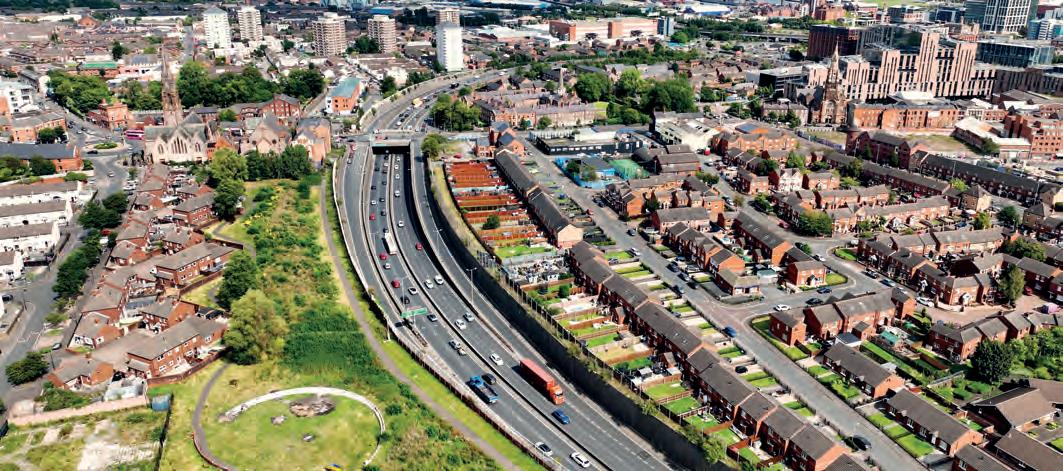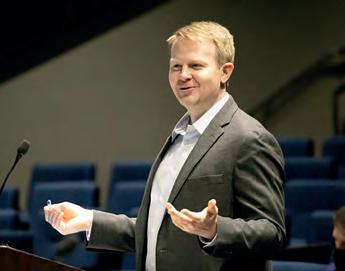
2 minute read
MORE THAN AGGREGATE AND ASPHALT: HOW SMART MOTORWAYS WILL EVOLVE
Smart roads are being talked about more and more in construction and according to those in the know, like Tim Sylvester, CEO of Kansas Citybased Integrated Roadways, they are set to evolve into a whole new business model for road infrastructure.

Speaking at CONEXPO in Las Vegas, Tim described himself as a ‘first-generation internet user’ who went into construction.
“In the late 90s I could already predict that roadways would eventually converge with networks to enable connected, electric and autonomous vehicles,” says Tim. He founded Integrated Roadways to bridge the gap between tech and infrastructure and he believes the process will fundamentally change the nature of road construction works, financing and revenue streams.
“The model that’s been in use for 100 years - where the owners specify; they finance and contractors deliver - worked very well initially. Now half of our infrastructure needs to be rebuilt and there’s no money to do it. All the solutions are decades old,” says Tim. “We’re taking a different approach by transforming the road into a network. It pays for itself; it’s no longer a public liability that’s funded through taxes.”
CONNECTING CONSTRUCTION, TECH AND INFRASTRUCTURE
Tim explains the process: “We use the road to deliver a networking platform that provides services people are eager to pay for, and so we use a new market approach that’s no longer top down. It’s bottom up. “We ask municipalities (local authorities) for concession to upgrade certain roads over a decade. We then take that concession to the finance industry and tell them, “We’re delivering data services, telecom services, all kinds of stuff people will pay for. We need you to finance this like a real estate development. Instead of physical tenants, we have digital tenants that are leasing services.
“We can then tap into traditional finance organisations to deliver road improvements. Once they’re up and running, they pay for their own existence and no longer need to be funded by public sources.”
Underpinning this approach is the wireless connectivity our societies expect and want. “The entire internet economy is based on internet traffic data,” he says. “The physical economy is based on physical traffic, so we bring them together”
This is not a toll road concept. Tim continues: “We’re not a tollway but more like a WalMart where it’s free to enter to shop.” The road is paid for by the commercial enterprises (digital tenants) that benefit from being part of the physical road economy.”
HOW DOES IT WORK OUT FOR THE CONTRACTOR?
In Tim’s view, whilst this model is currently only a small part of the economy, it will become a game-changer for contracting work. The physical work of construction and maintaining roads will remain the same in terms of setting up the base. However, the pavement would come in pre-made blocks to be put down instead of a continuous asphalt or concrete application. Tim believes off-site pavement blocks will reduce machinery and labour costs and that the procurement system will act as an incentive, giving the contractor the option to generate ongoing revenue from each project.
“Every time a contractor does a job, now they have a piece of equity in a financial asset that generates recurring revenue, and they get a share of that.”









